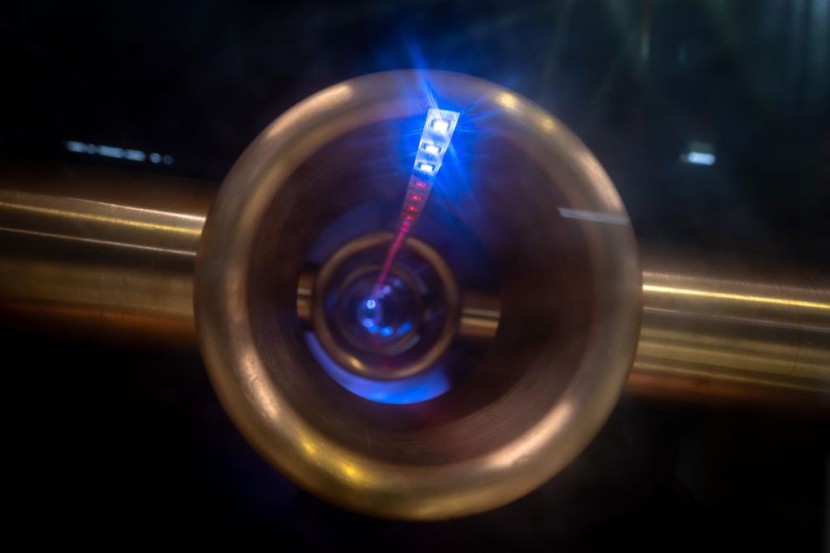The European Council for Nuclear Research (CERN) unveiled its plans to build a new $17 billion collider that would help scientists uncover the secrets of the universe.
The CERN laboratory revealed more details on Monday regarding its new endeavor for a new particle accelerator that is expected to dwarf the Large Hadron Collider (LHC). If the proposal is approved, the Future Circular Collider (FCC) will start smashing its first particles together around the middle of the century and begin its highest-energy collisions around 2070.

The new collider would run under France and Switzerland and would be more than triple the length of CERN's LHC, which is currently the largest and most powerful particle accelerator. The idea behind the two colliders is to send particles spinning around a ring to smash into each other at nearly the speed of light, which could potentially reveal their true nature.
Among the LHC's other discoveries, it made history in 2012 when it allowed scientists to observe the Higgs boson for the first time. However, the LHC, which cost $5.6 billion and began operating in 2010, is expected to have run its course by around 2040, as per Phys.org.
The newly proposed FCC is expected to be faster and more powerful and would allow scientists to continue pushing the envelope of scientific discoveries. They are hoping that it could help them confirm the existence of more particulars, which are considered the building blocks of matter, which so far have only been theorized.
Another job for science that has been left unfinished is working out exactly what 95% of the universe is made of. Roughly 68% of the universe is believed to be dark energy while 27% is dark matter, both of which remain a complete mystery to scientists.
Another mystery is why there is so little antimatter in the universe when compared to the amount of matter observed. CERN is hoping that a massive upgrade of humanity's ability to smash particles could shed some light on these and many others.
Uncovering the Secrets of the Universe
The plans for the FCC were first drawn up in 2019 and it would have a 91 kilometer circumference and would be able to smash subatomic particles together at a maximum energy of 100 teraelectronvolts (TeV). This is leagues above what the LHC is capable of, which is a maximum of 14 TeV, according to The Guardian.
However, the proposal has its critics, including the United Kingdom's former government chief scientific adviser, Sir David King. He noted that spending billions on the machine would be "reckless" when the world is currently facing such grave threats from the climate crisis.
The director general of CERN, Fabiola Gianotti, said that the FCC is a possible facility because it is still at the level of a feasibility study. She noted that review committees had so far not turned up any "technical show-stoppers" for the project.
However, she touted the planned collider as a "wonderful instrument to improve our understanding of fundamental physics. Gianotti also called it a driver of innovation in areas such as cryogenics, superconducting magnets, vacuum technologies, and detector-instrumentation technologies, said Fox News.
Related Article : Japan Moon Lander Revived As Lunar Day Dawns
© 2026 HNGN, All rights reserved. Do not reproduce without permission.








